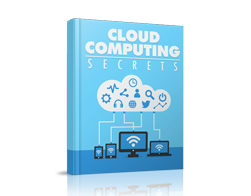Secrets” might be a bit of a stretch, but there are certainly key concepts and practices in cloud computing that are worth knowing:
Scalability: One of the biggest advantages of cloud computing is its scalability. Resources can be easily scaled up or down based on demand, allowing businesses to handle fluctuations in workload efficiently.
Cost Management: While cloud computing offers flexibility, it’s essential to manage costs effectively. Understanding pricing models, optimizing resource usage, and implementing cost-monitoring tools are crucial for keeping expenses in check.
Security: Security is a top concern in cloud computing. Implementing proper access controls, encryption, and regular security audits are essential to protect data and infrastructure in the cloud.
Reliability: Cloud providers offer Service Level Agreements (SLAs) guaranteeing uptime and reliability. However, it’s important to architect applications for redundancy and fault tolerance to ensure business continuity.
Data Management: Effective data management involves considerations like data storage, backup, and disaster recovery. Understanding data residency requirements and compliance regulations is also crucial, especially for sensitive data.
Hybrid and Multi-Cloud Strategies: Many organizations adopt hybrid or multi-cloud approaches to leverage the benefits of different cloud providers and on-premises infrastructure. Understanding how to integrate and manage resources across environments is key.
Automation and Orchestration: Automation tools and orchestration frameworks streamline cloud operations, enabling rapid deployment, scaling, and management of resources.
Performance Optimization: Optimizing performance involves fine-tuning applications, selecting appropriate instance types, and leveraging caching and content delivery networks (CDNs) to reduce latency and improve user experience.
Compliance and Governance: Compliance requirements vary across industries and regions. Implementing robust governance frameworks and adhering to industry-specific regulations is critical for maintaining compliance in the cloud.
Continuous Monitoring and Optimization: Regular monitoring of cloud infrastructure and applications helps identify performance bottlenecks, security vulnerabilities, and cost optimization opportunities. Continuous improvement is key to maximizing the benefits of cloud computing.
While these aren’t exactly secrets, they are foundational principles and best practices that every cloud practitioner should be aware of.

| escription: Introducing Cloud Computing Secrets. Inside this eBook, you will discover the topics about defining cloud computing, benefits of cloud computing, is cloud computing really secured, what is public cloud all about, understanding the concept of private cloud, hybrid cloud and its advantages, types of cloud for your business, key features of cloud computing and revolutionize your business with cloud computing. ► Contains 28 Pages. |
| License: Master Resale Rights (MRR) |
| Source File: Not Included |
| eCover: Included |
| Sales Page: Included |
| Squeeze Page: Not Included |
| Niche: Tech |
| File Size: 854 KB |
PLR content refers to materials such as articles, ebooks, and video courses which can be used almost as if you created them yourself. This type of content is extremely valuable for people such as content creators, marketers, coaches, and consultants, especially if they rely on inbound marketing to generate business.





